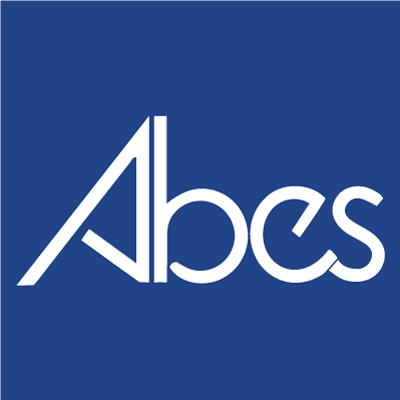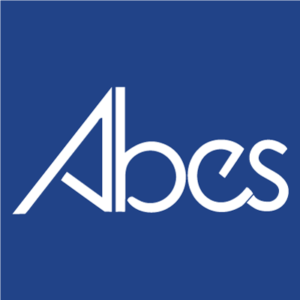Medical Laboratory Assistants (MLAs) are central to our modern healthcare system, working behind the scenes to ensure accurate and timely test results. If you’re considering a career as an MLA in Alberta, this guide will answer the most frequently asked questions about this rewarding profession, covering everything from job duties to career prospects.
What is a Medical Laboratory Assistant?
A Medical Laboratory Assistant (MLA) is a key player on the healthcare team, responsible for performing various tasks that support laboratory operations. MLAs work in a range of settings, including hospitals, private laboratories, and research facilities. Their main responsibilities include collecting, labelling, and processing specimens like blood, urine, and tissue samples, which are then analyzed to help diagnose and treat patients.
Additionally, MLAs are often tasked with maintaining laboratory equipment, managing inventory, and ensuring that lab environments comply with safety regulations.
What Are the Daily Tasks of a Medical Laboratory Assistant?
The daily tasks of a Medical Laboratory Assistant can vary depending on the work setting but typically include several key responsibilities. MLAs are frequently involved in phlebotomy, the process of drawing blood from patients for laboratory testing. They prepare specimens by following specific protocols to ensure that samples are accurately labelled and not contaminated.
In addition to specimen collection, MLAs perform basic laboratory tests under technologists’ or laboratory managers’ supervision. They also handle administrative duties, such as entering patient information into databases, ordering supplies, and ensuring that the laboratory is well-stocked and organized. These tasks require a high level of attention to detail and a strong understanding of laboratory procedures.
What Are the Education Requirements to Become an MLA in Alberta?
To become a Medical Laboratory Assistant in Alberta, you need to complete a recognized training program that provides both theoretical and practical education. Most MLA programs in Alberta require applicants to have a high school diploma with a focus on science courses like biology and chemistry.
The programs typically last about 6 to 12 months and include classroom instruction combined with hands-on training in a clinical environment. Courses cover topics such as phlebotomy, specimen handling, laboratory safety, and medical terminology. After completing the program, graduates are well-prepared to enter the workforce, although some may choose to pursue further certification to enhance their career prospects.
What Skills Are Taught in an MLA Program?
MLA programs in Alberta are designed to equip students with the practical skills and knowledge they need to excel in their roles. Key skills taught include phlebotomy, where students learn how to safely and effectively draw blood from patients, specimen handling and processing, and preparation of samples for analysis.
Lab safety is another critical component of the curriculum, covering how to work safely with hazardous materials (bodily fluids and sharps) and maintain a clean and organized work environment. Administrative skills are also emphasized, including data entry, patient communication, and inventory management. Students are expected to gain a strong understanding of medical terminology and be able to operate basic laboratory equipment.
How Long Does It Take to Get Certified as an MLA?
The duration of MLA programs in Alberta varies, but most take between 6 and 12 months to complete. Some programs are accelerated, where you can complete them in just a few months with more hours of training per day.
After completing the program, students may choose to obtain certification through a recognized body like the Canadian Society for Medical Laboratory Science (CSMLS). Certification can enhance job prospects and may be required by certain employers. The certification process typically involves passing an exam that tests the knowledge and skills acquired during the chosen training program.
How Much Do Medical Laboratory Assistants Make in Alberta?
Salaries of Medical Laboratory Assistants in Alberta vary based on experience, location, and the specific healthcare setting. According to the Alberta Learning Information Service (ALIS), the average hourly wage for MLAs in Alberta ranges from $22 to $35. This translates to an annual salary of approximately $40,000 to $65,000, depending on full-time or part-time status. In addition to base salary, MLAs may receive benefits such as health insurance, retirement plans, and opportunities for overtime pay, particularly in larger healthcare facilities.
What Are the Career Prospects for MLAs in Alberta?
The demand for Medical Laboratory Assistants in Alberta is expected to grow due to the aging population and the increasing need for diagnostic services. MLAs have a solid career path with opportunities for advancement into roles such as Laboratory Technicians or Technologists, particularly with additional education and training.
Plus, there is potential for specialization in areas such as histology, cytology, or microbiology, which can lead to higher-paying positions. For more detailed labour market information, visit the ALIS page on Medical Laboratory Assistants.
What Certifications Are Required for MLAs in Alberta?
While certification is not mandatory for Medical Laboratory Assistants in Alberta, it is highly recommended and often preferred by employers. Certification demonstrates a commitment to the profession and can significantly enhance job prospects. The most recognized certification for MLAs in Canada is through the Canadian Society for Medical Laboratory Science (CSMLS), which requires passing an examination that tests both theoretical knowledge and practical skills. Some employers may also require CPR or First Aid certification as part of the job requirements.
What Types of Work Environments Do MLAs Work In?
Medical Laboratory Assistants work in various settings, including hospitals, private laboratories, and research facilities. In hospitals, MLAs often work in the pathology or clinical chemistry departments, handling a large volume of specimens daily.
In private laboratories, they may focus on specific types of tests, such as blood work or genetic testing. MLAs in research facilities might be involved in supporting clinical trials or other scientific studies.
Regardless of the setting, the work environment for MLAs is fast-paced and requires strict adherence to safety protocols to prevent contamination and ensure accurate test results.
What Are the Benefits of Becoming a Medical Laboratory Assistant?
A career as a Medical Laboratory Assistant offers numerous benefits, including job stability, a competitive salary, and opportunities for advancement within the healthcare sector. MLAs play a critical role in patient care by ensuring that laboratory tests are conducted accurately and efficiently, contributing to better patient outcomes.
Additionally, the role provides a good work-life balance, particularly in settings with regular business hours. MLAs also have the satisfaction of working in a profession that is in high demand and offers the opportunity to make a meaningful impact on patient care.
How Can I Start a Career as a Medical Laboratory Assistant in Alberta?
To start a career as a Medical Laboratory Assistant in Alberta, the first step is to research and enroll in an accredited MLA program, such as the one offered by ABES College. Completing the program will provide you with the necessary education and hands-on experience to enter the field. After graduation, consider obtaining certification through the CSMLS, as this can enhance your employability. Networking with professionals in the field and gaining experience through internships or volunteer opportunities can also help you establish a strong foundation for your career.
Next Steps: Apply to ABES in Calgary Today!
If you’re ready to pursue a rewarding career as a Medical Laboratory Assistant, consider enrolling in the comprehensive MLA program at ABES College. Our program is designed to equip you with the skills and knowledge needed to succeed in this dynamic field.
Contact us today to learn more about the program and how you can get started on your path to becoming a Medical Laboratory Assistant.


